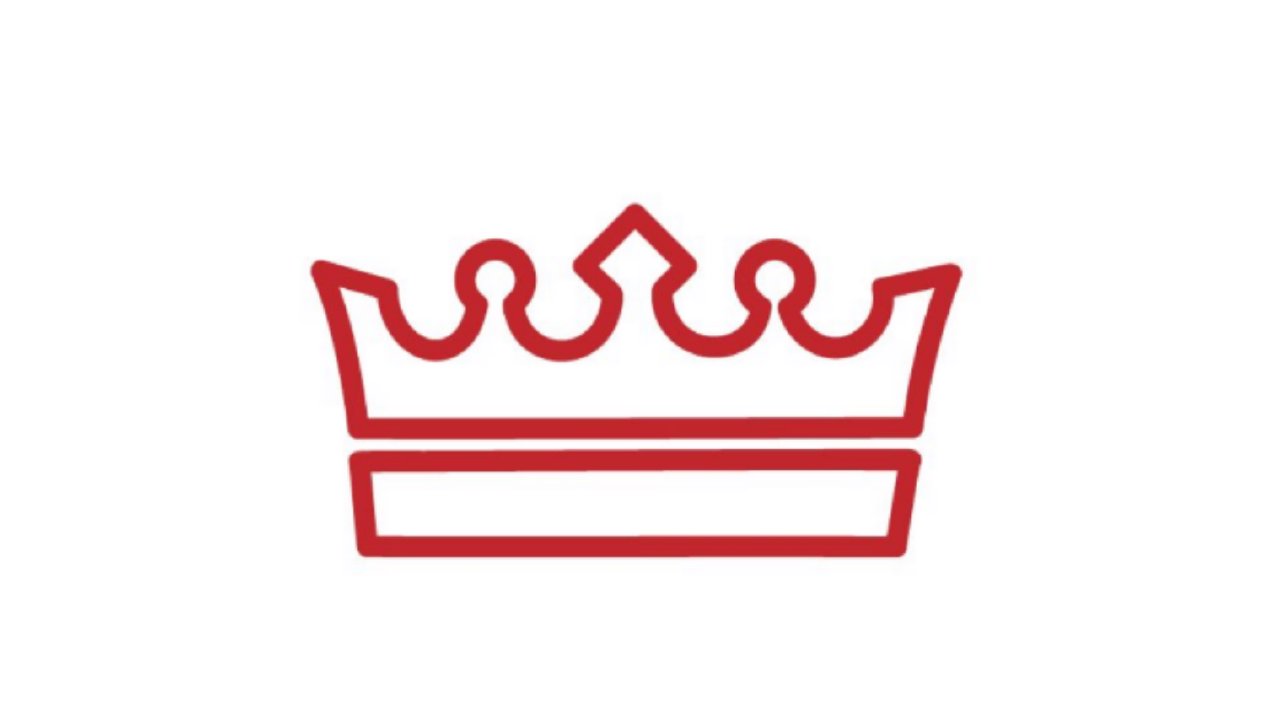One of the things that my family does on a normal night is that, over dinner, we go around the table and we talk about the highs and lows of our day.
What happened today that made you excited?
What happened today that was difficult?
What was your high and what was your low?
I try to help the kids name their emotions and draw out the language of the heart — and it is the most chaotic thing I do.
Don’t imagine that anything about this is orderly. Most of the time it’s just crazy town — because half our kids are younger, and so there’s a lot of squirming and side-conversations and corrections that are needed and all that, but somehow we manage to get the highs and lows. Which I think is important.
Because we all have highs and lows, as family members and as a family as a whole. There are gifts and losses, blessings and disappointments. The life of a family has highs and lows, and so does the life of a church.
The life of the local church is full of things we have to endure. Burdens to carry; valleys to walk through; complexities to navigate. If one member suffers, we all suffer together (see 1 Corinthians 12:26). We as a church have our lows.
And we have our highs — there are the ways God’s faithfulness is displayed; the ways he provides for us; the evidences of grace in our lives. If one member is honored, we all rejoice together (see 1 Corinthians 12:26). And I wonder: if you were asked to name a few high points from 2021, what would they be?
I try to reflect on these things this time of year, and there are a handful of moments stand out to me. Three big ones:
One is when our parents dedicate their children to God;
And then another is when we celebrate God’s grace in baptism; and
And then another is when new members join our church.
These are high points for us, and recently, as I was thinking about these things I noticed at least one common thread in all three. At each of these events there are things that we say, and I’m gonna read from some of that, and I want you to see if you can pick up on a theme:
First, at child dedications, we ask our parents:
Do you promise, God helping you, to make it your regular prayer that, by God’s grace, your children will come to trust in Jesus alone for the forgiveness of their sins and for the fulfillment of all his promises to them; and in this faith follow Jesus as Lord, Savior, and supreme Treasure of their lives?
Then, at baptism, the third baptismal question we ask:
Do you intend now, with God’s help, to obey the teachings of Jesus and to follow him as your Lord, Savior, and Treasure?
And then when we affirm our membership covenant together, that covenant starts like this:
Having been led, as we believe, by the Spirit of God, to embrace Jesus as the Lord, Savior, and supreme Treasure of our lives …we enter into covenant …
Okay, did you hear it? What does all of that have in common?
Well, first, it’s that we call Jesus “Jesus” … because that’s his name and he is a real person! Amen!
But also, we say that we embrace Jesus as our Lord, Savior, and Treasure.
Most of the time, Christians will say “Lord and Savior” but we add this Treasure part, for the reasons Pastor David Mathis showed us last week: Jesus as Lord and Savior is who he is and what he does, and Jesus as Treasure is what he is like as Lord and Savior.
It’s the paradox of Jesus as the Lion and the Lamb, the one who is mighty and meek, transcendent and near, fully God and fully man. There is nobody like Jesus. Nobody. He is Lord, Savior, and Treasure.
And he is King. If there’s one thing clear about Christmas, it’s that Jesus came as the King. I think that’s the most repeated theme in all our favorite Christmas songs: “Hark! The herald angels sing ‘Glory to the newborn King!’” “Joy to the world, the Lord is come! Let earth receive her King!”
Jesus is King! — and so how should we think about this?
How does Jesus’s kingship fit with him as “Lord, Savior, and Treasure”? Why not add “King” to that list? We could! We could also add Priest and Way and Truth and Life — the glory of Jesus is inexhaustible, and we’re never gonna get it all in a sentence, but the way to think about Jesus’s kingship (and priesthood, as we’ll see next week), is that Lord, Savior, and Treasure are descriptions of Jesus, but Jesus as King is the office he holds.
Jesus being a King is his job, you could say. You go to work everyday and you do what you do, Jesus goes to work as King. And that’s what we’re going to talk about today: Jesus, Our King.
And there are three things to see about his kingship in Luke Chapter 1. And this is the sermon:
Jesus, our King, was long expected.
Jesus, our King, is unlike other kings.
Jesus, our King, must be obeyed.
Let’s pray:
Lord Jesus, I am a severely weak man whose only chance of doing anything of any lasting good is if you work through me. In our weakness you promise to be strong, and I ask for your strength this morning. Please stand by me and help me. By your Spirit, through your Word, show us your glory. In your great name, amen.
1. Jesus, our King, was long expected.
Look at Luke Chapter 1, verse 32. The angel, Gabriel, was sent by God to Mary, and he told her that she will conceive and bear a son, and you shall call his name Jesus. And then in verse 32, Gabriel explains. Verse 32:
He will be great and will be called the Son of the Most High. And the Lord God will give to him the throne of his father David…
And so right away, make no mistake about it, this baby is a king. That would have been the most obvious thing to Mary in this encounter, and that’s mainly because of her Jewish faith. She had a king category. Because, going back hundreds of years, echoing through the pages of the Hebrew Scriptures, there was the promise that a king would come. And it wasn’t just any king, but this was a king in the lineage of David.
So that part made sense to Mary.
So much of this was troubling, like verse 29 says. This was a surprise. But the “king in the line of David” part , Mary had heard that before, and she knew she was of the house of David. So she is tracking with that.
This is why the first thing she says back to Gabriel is not “I have no idea what you’re talking about” but she says “How’s this gonna happen?”
And Gabriel goes on to explain the virgin birth, but he doesn’t have to explain the king part.
Mary gets the king part, and I want us to step into her shoes for a minute. Where does this hope for a king come from in the Old Testament?
Okay, for a minute here we’re going to go back and see, and there are three mile-marker passages in the Old Testament to highlight. This is like a cheat-sheet. Three key texts in the Old Testament about Israel’s hope for a king.
Deuteronomy 17;
2 Samuel 7;
1 Kings 10
You don’t have to turn there. I’m gonna briefly explain them to you, starting with Deuteronomy 17.
DEUTERONOMY 17
The people of Israel had been set free from Egypt;
they received the law of God;
they received the arrangement of God’s presence through the temple, despite their sinfulness; and
they received the promise of their own land, which is where they’ve been headed through 40 years of wandering in a desert.
Now, finally, they’re about to enter the Promised Land and Moses is preparing them by basically preaching a sermon. He summarizes the law and recounts their history and prophecies about their future, and he tells them one day they’re going to have kings. They didn’t need human kings because God was their king, but one day, in the future, they’re going to want a king and God will give them one. And in view of that, Moses lays out some stipulations for these kings in Deuteronomy 17. Here are some things that the king should do and should not do.
In the positive, Israel’s king is to be devoted to the word of the Lord. He is to write for himself a copy of the law, he’s is to keep it with him and he’s to read it all the days of his life (Deuteronomy 17:18ff).
Remember this and hold onto it. Deuteronomy 17. Now there’s 2 Samuel 7.
2 SAMUEL 7
When God eventually gives Israel a king, the first one is Saul, and he was your typical George Washington-type figure. He was a man’s man, a natural leader, his presence commanded attention. But he proved unfaithful, and God took the kingdom from him and gave it to a little shepherd boy named David.
And that moment itself was one of the most significant moments in the whole king storyline, because Jesse, David’s father, had eight sons. David was the youngest.
And at first, when the prophet Samuel came to find the son of Jesse that God had chosen to be the next king, David wasn’t even there. Right away Samuel thought it was Eliab, the first son, but God said no. Then Samuel thought it was Abinadab, but God again said no. Then Samuel said, Okay, it must be Shammah, but again, God’s answer was no. Jesse put forward seven of his sons, and God said no to them all. And Samuel is confused and he says, “Is this all?” And Jesse said, “Well yeah, except for the youngest” (see 1 Samuel 16:11). And that word for youngest is not so much about birth order, it means something like “insignificant one.” We might say something like “the little guy.” The shrimp.
Samuel says, “Are these all your sons?” And Jesse says, “Yeah, except for the little shrimp out keeping sheep.” Samuel says to go get him. So David comes and the Lord says, “That’s him.” And we gotta learn the lesson: God doesn’t see as man sees; we look at the outward appearance, but God looks at the heart, and David is his man. God makes him king, against all odds, and in 2 Samuel 7 God promises David one of the most important promises in the entire Bible.
God tells David that God will raise up his offspring to be king forever (2 Samuel 7:13). David will have a son, a son in his lineage, and God will establish the kingdom of this son forever. This son will be the Anointed One, the Messiah. Remember this and hold onto it. 2 Samuel 7.
Now 1 Kings 10.
1 KINGS 10
1 Kings 10 is all about King Solomon, David’s son. And what’s important about this chapter is that many thought that Solomon was the son that God promised in 2 Samuel 7. He seemed to fit the bill. He was a son of David, and God established his kingdom and the kingdom of Israel flourished under Solomon, at least at first. But what we find in 1 Kings 10 changes things.
Remember back to Deuteronomy 17 there’s the lists of things the king should and should not do. Well, the negative side of those things is that the king of Israel must not acquire many horses; he must not acquire excessive silver and gold; and he must not acquire many wives (see Deuteronomy 17:16–17).
And see, some thought Solomon might be his promised King, he might be the One, but then in 1 Kings 10 we read, almost like in a list…
that Solomon had 12,000 horsemen — that’s a lot of horses.
He had more gold than anyone in history, and he had so much silver that it wasn’t even worth anything — that’s a lot of gold and silver.
And then we read that Solomon had 700 wives and 300 concubines — that’s a lot of that.
And all this means that by the time we finish reading 1 King 10 we think, Wait a minute! Solomon can’t be the guy. And then we have to look to the next king and then the next, and then the kingdom falls apart, and all we see from here out is one king after another rises and falls. They come and they go, some are good, most are bad, but they all die. Which means, where is this promised King from 2 Samuel 7? Is he really going to come?
By the end of the Old Testament, with Israel in exile, we’re still looking for this king.
We’re looking for the king to be born in the lineage of David. And what does the angel Gabriel say?
Your son, Mary, your son named Jesus, the Lord God will give to him the throne of his father David.
And she knew about that. Jesus, our king, was long expected.
And also, secondly, Jesus, our king, is unlike other kings
2. Jesus, our king, is unlike other kings.
Jesus is a king in his own class. Nobody has ever been a king like him, for at least two reasons: his reign is eternal, and his reign is good.
HIS REIGN IS ETERNAL
Notice verse 33. This newborn King from the house of David “will reign over the house of Jacob forever, and of his kingdom there will be no end.”
There have been lots of kings throughout the history of the world, and lots of kingdoms, but no king or kingdom has lasted forever. None except this one. Jesus is unlike other kings because there will never be a king to succeed him. No king will ever be over him, but all kings will always be under him. That is why he is called the King of kings (see Revelation 19:16).
And that is not hypothetical or subjective, it is a bold fact. It’s the truth about reality. Christmas is about Jesus coming here to be the king forever, and since it’s forever, that applies to right now. Don’t hear the word “eternal” and think: way out there someday. It’s more like in this moment and unceasingly so.
Which means part of our witness to Jesus is not inviting people to make Jesus their king; it’s exhorting people to recognize Jesus as the king.
And see, this is part of the problem with pluralism. While we absolutely respect the dignity of our neighbors to believe whatever they choose, every belief system is not equally valid, and only one is ultimate. Only one King lasts forever. And so we have to be careful not to buy the lie that “what’s true for you is true for you, and what true for me is true for me.” Jesus the King will have none of that.
The proclamation of the gospel says that Jesus is King and we’re all guilty of treason. We either repent and submit to his kingship now, or we continue in our rebellion and face his judgment. That’s what we’re looking at here.
And if we’re honest, this is not something that’s easy for us, especially in our American society where we have such a distaste for monarchy and authority. The American spirit is anti-king. We are anti-authority — “Don’t tread on me!” “We the people!”
In our historical imagination, kings are tyrants, and in many cases throughout history that’s been true. But that’s been true because of our depravity, not because monarchy as a form of government is wrong. Monarchy is God’s design for government. In the new creation, which is the future of this world — where everything in this world is trending — the new creation will NOT to be a democratic republic. It’s going to be kingdom with a king who rules over everything, and who rules even now, whether we like it or not. The reign of Jesus, our King, is eternal.
HIS REIGN IS GOOD
But also — and this makes the all the difference — the reign of Jesus our King is good. And I love to talk about his goodness.
This is where it all comes together, Jesus our King, is Lord, Savior, and Treasure. And he’s unlike other kings not just because he’s eternal, but because he is truly good in the deepest sense of the word. He is the truly righteous king. He is the king who will put all things as they should be and whose power is seen in his mercy.
We proclaim that in the gospel too. That is the gospel. It’s that Jesus is King and we’re all guilty of treason, every last one of us, but somehow, to our great surprise, in the command to repent is the assurance of our complete forgiveness.
It’s that if we turn from our treason, turn from our sins, and bow to Jesus, he will erase all of our guilt. Even if you’ve been on the payroll of hell, even if you’re drowning in shame, bow to Jesus and be forgiven. Bow to Jesus and be cleansed. How?
Because Jesus is the king who gave his life for his people. Rather than execute judgment on the guilty, he suffered judgment in the guilty’s place.
What king ever did that? Do you see what kind of King he is?
There is no limit to his power. He upholds the universe by his words. He sits forever on his throne. He has the whole world in his hands. And yet on the night that he was betrayed he took those same hands and tied a towel around his waist and bent down on the ground to wash his disciples’ feet.
He is a king who doesn’t use his people for his gain, but who saves his people at greatest cost to himself. He is a king who doesn’t bend his subjects to meet his needs, but he calls his subjects beloved and restores them to God’s original purpose, life abundant and unending. There is no king like Jesus.
So what are you doing?
What are you gonna do about Jesus our King?
3. Jesus, our King, must be obeyed.
Here we learn from the example of Mary. But before we look at Mary’s response to Gabriel, I just want to make sure we’re clear on what’s happened here.
Mary was a Jewish girl engaged to be married to Joseph, and although the Gospels don’t tell us her age exactly, because we know she was a virgin and that she was engaged, according to the customs of this time, she was mostly like a young teenager. Think 16 years old.
So the angel Gabriel comes to this 16 year old girl and tells her that she is going to become pregnant with the promised King from the house of David. And the way she will conceive is a miracle. God will do it. He will make it happen with no human cooperation. The embryo will just BE, and the child will grow, and it will show.
Mary, this 16 year old engaged girl, unmarried girl, will look the way all women look when they are pregnant. And I doubt that we appreciate the social cost this meant for her. The obvious conclusion of everyone around Mary when they saw her would be that she either had sinned with Joseph prior to marriage, or she had been unfaithful to him.
This sincere, faithful Jewish girl would be seen as insincere and unfaithful. And not just in her pregnancy, but all the days of Jesus’s life, because people can do math: So Jesus is six years old and he’s already lost his teeth, but you’ve only been married how long?
We know later on, in Jesus’s ministry — so when he was around 30 years old — he’s in a dispute with the Pharisees, and they said to him, “We were not born of sexual immorality” (John 8:41), which implied that they believed he was. There was a reputation, three decades later.
The misunderstanding of Mary, the wrong interpretation of her pregnancy, that was not just a nine months thing, but it followed her the rest of her life. And she knew it would when Gabriel said what he said to her. God sent Gabriel to tell Mary something outrageous, something she did not sign up for, something that had a cost. And what does she say? What is this 16 year old girl’s response to the shocking announcement of God?
“Behold, I am a servant of the Lord; let it be to me according to your word” (Luke 1:38).
And Luke, the Gospel writer, tells us this for our benefit. This encounter with Gabriel ends with this response of Mary because this response is an example of the response that we all should have when we meet Jesus.
Because Jesus is the true King, the King of kings whose reign is eternal and good, what do we do? We obey. We do like Mary. We say from our hearts: I am your servant, Lord. Whatever you want.
Which doesn’t mean we check a box. This doesn’t mean that we try to relegate Jesus as some kind of side-gig to our lives. It means we yield to him our everything. We surrender to Jesus our all.
That’s an old song we don’t sing much anymore.
I surrender all.
I surrender all.
All to Thee my Blessed Savior,
I surrender all.
That is how we must respond to Jesus our King.
And that is, in fact, what we do every Sunday when we come together at this Table.
The Table
For those of us who have obeyed Jesus our King, for those of us who have, by God’s grace, turned from our treason and bowed to him in faith, when we receive this bread and cup, we are saying anew that indeed we trust Jesus. We belong to Jesus. Our hope is in Jesus. We are saying, Behold, we are servants of the Lord. Whatever he wants.
And when it comes to highs and lows, church, this is the true high point for us. It’s when we remember together the love of Jesus and his gospel, which we do now for the 51st time in 2021.
His body is the true bread.
His blood is the true drink.
Let us serve you.

Jesus, Our King
December 19, 2021 • Jonathan Parnell
More from
Advent 2021







